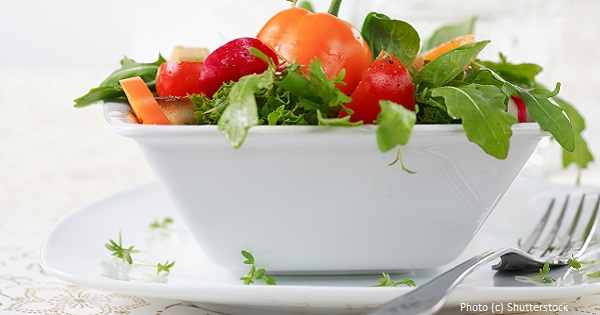|

Eating Green During your Winter Pregnancy
By Katie Kapro
At my house, winter is synonymous with pizza. There are the practical reasons: The garden is frozen over for one, and blasting the oven up to 205°C keeps the house warm for hours. But let’s be honest: there are also the all important tasty reasons.
Nothing compares to a crispy thin crust just out of the oven, golden like autumn itself, and the mozzarella cheese … don’t get me started on the cheese.
Strange thing is, I always gain a few pounds in the winter. Go figure. This tendency toward eating unhealthy in the colder seasons has never been a huge concern for me; I figure I can walk it off when the weather gets nicer. But this winter, my best friend is pregnant and suddenly proper nutrition is a much deeper concern for us both.
She only has nine months to grow this baby, so there’s no way she’s wasting five or six of those on junk food.
We are both avid gardeners, and we have always relied on our vegetable gardens for most of our greens. But when one’s garden freezes over in the winter, it obviously becomes much more challenging to find fresh fruits and vegetables.
Before giving up and driving to the grocery store, we went on the hunt for a solution. And much to our satisfaction, we found that many pregnancy superfoods are easy to grow indoors. Win!
Here are a few indoor superfoods for you if you're pregnant this winter.
Microgreens
Microgreens are easy to grow indoors. All it takes is a shallow tray, soil, a window sill with some sunlight, and you’re in business.
Microgreens are everything from sprouts to beets to herbs, many of which are known to be good for pregnancy. You could even grow your own chamomile indoors for chamomile tea!
Spinach
Spinach is a great leafy green to grow indoors because it does best in partial shade, requiring just three to four hours of sunlight every day. It’s also a good idea to pick the outer leaves on a regular basis so that new leaves will grow. Spinach leaves to mature in six to eight weeks, so you’ll want to sow the seeds in fall to have your greens by winter.
Kale
Kale is a superfood for just about anybody, and especially so for pregnant women. Just like spinach, kale prefers 3-4 hours of sunlight a day. But this plant prefers direct, bright light as opposed to filtered light.
If you’re not a huge fan of traditional kale fare, you can take advantage of it’s unique versatility and throw it in a smoothie.
Importance of Good Nutrition
Proper nutrition is hugely important throughout a woman’s entire pregnancy. Malnutrition during pregnancy can cause congenital defects, skeletal disfigurement, and premature birth. Research even shows that a mother’s poor diet during pregnancy – specifically one high in fat and sugar – is associated with childhood ADHD.
We want to be concerned with helping our kids grow their brains and navigate the everyday stresses of school when they get older, not deal with physical and mental deficits that put them at a disadvantage.
The biggest thing to keep in mind when you are growing a small human is that you must increase your intake of both micronutrients and macronutrients. A lot.
Nutrients
Micronutrients are vitamins and minerals like folate, niacin, and iron to name a few. There are a total of 28 micronutrients that a mother requires during pregnancy and lactation. Macronutrients include carbohydrates, protein, and fats. Found in foods like whole grain bread, chicken, and avocado, they provide energy and calories. A woman’s energy requirements increase 300 kcal/day when she’s pregnant, so it’s understandably important to keep up your intake of macronutrients.
In addition to prenatal vitamins and the greens you can grow at home, you can get all of the necessary micro- and macronutrients during pregnancy by including foods from at least three different food groups in every meal. Each food group has something unique to offer a pregnant body.
-
Grains are a good source of energy.
-
Fruits and vegetables are packed with antioxidants, fiber, and vitamins.
-
Meats, nuts, and legumes can provide protein, folate, and iron.
-
Dairy products are a good source of calcium and vitamin D.
This brings us back to pizza.
Pizza is by no means inherently bad. It contains several of the important food groups: dairy, grains, meat, and deliciousness. But a pregnant woman cannot eat her way through winter on pizza alone.
With a little bit of planning – buying potting soil, planters, and seeds – perhaps the next pizza craving in the cold winter months could be topped with pregnancy-friendly greens. Go leafy ladies!
Katie Kapro is a writer and green-for-lifer living in the US Intermountain West.
|

